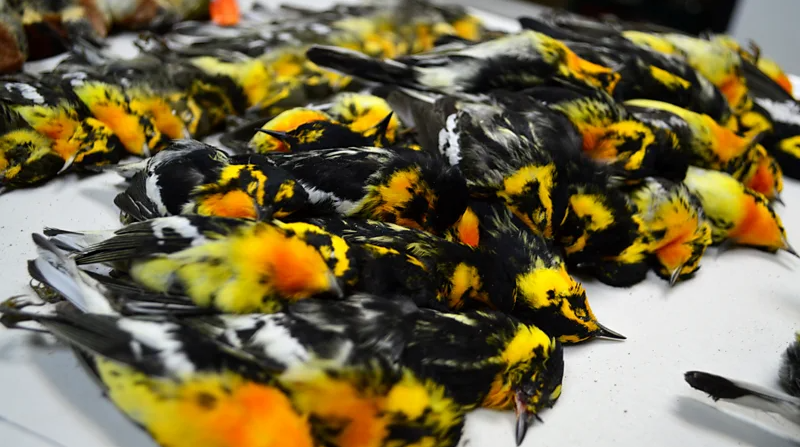Our mission:
Make migration safer for birds
Every spring and fall, millions of birds migrate through Louisville on their way between their breeding and overwintering grounds. Most species of songbirds migrate at night. Lights on tall buildings or aimed at the sky can attract or disorient them—causing many birds to collide with windows or circle buildings until they fall from exhaustion.
Researchers estimate 300 million to 1 billion birds are killed each year due to collisions with artificially lit buildings. Another recent study found—in the U.S. alone—up to 5.19 billion birds die each year from window collisions, and potentially billions more across the world.
With the help of our supporters and allies—including local businesses, residents, conservation groups, and governmental agencies—Lights Out Louisville aims to change that.
Join the Louisville Audubon Society as we expand our community efforts to make our city safer for migratory wildlife.

Anyone can be part of the solution.
By joining Lights Out Louisville, you help to reduce the impacts of light pollution on migratory songbirds.
You’ll also cut your energy costs, reduce your carbon footprint, and help preserve views of the night sky.
Every small action adds up to a bigger impact. And it’s easy to be part of the solution:Just do what you can to reduce artificial light at night in April and May, and in September and October, at your residence or a building you own, operate, or lease.
Join the other residents and organizations participating in this local conservation program: Sign one of the pledge forms below (or both, if applicable to you). There’s no cost to enroll, and it takes less than1 minute.
Track bird migration in real time
BirdCast offers real-time maps—produced by the Cornell Lab of Ornithology—that show the intensities of nocturnal bird migration.
Its bird migration forecast maps—produced by Colorado State University and Cornell Lab, and updated every six hours during migration periods—predict nocturnal migration three hours after local sunset.
LAS joins BirdCast in asking residents, businesses and non-residential organizations, and building owners and operators to turn off nonessential lights during peak migration periods.
Watch the 1:30 video to learn more.
Stay informed
Keep tabs on upcoming local events, Lights Out Louisville program updates, relevant news and resources, and more: Sign up for our email list using the form below.